
 Flash News
Flash News
Argument with hard objects at a residence in Lundë, one person is suspected of being injured
Pope Francis' funeral, 4,000 police officers will oversee security at the Vatican tomorrow
Video/ Disappointed miner burns his PS card
Accident in "Plepat e Kardhiqit", German hits pedestrian in Gjirokastra
He raped an OSHEE employee, a 38-year-old man is wanted in Tirana

The exchange rate of the euro has officially fallen below the limit of 100 lek for the first time.
According to the official exchange rate of the Bank of Albania, the European currency was exchanged today for 99.95 ALL, touching a new historical minimum.
Since May, the Bank of Albania has intervened in the currency exchange rate to prevent the European currency from falling below the value of 100 lek. However, despite the direct purchases of the Bank of Albania and its frequent contacts with commercial banks in order not to allow a devaluation of the euro beyond this target, even the barrier of 100 lek was broken today.
The summer season is associated with increased pressures for the devaluation of the euro, due to the peak of the tourist season. The Bank of Albania tried to anticipate this effect at the beginning of the season, conveying a message to the market actors. The central bank had successfully managed to keep the exchange rate above the target level until today.
Although the fall of the euro below the limit of 100 lek has a symbolic significance, the degree of exchange rate fluctuation remains within the levels that can be corrected with the next intervention of the Bank of Albania.
Until now, the central bank has not published information regarding the amount of direct foreign exchange purchases to prevent further appreciation of the lek in the exchange rate.
Historically, seasonal pressures on the exchange rate reach their maximum level between the end of July and the beginning of August, although in the last two years the interventions of the Bank of Albania and several short-term panic waves that have swept the market have somewhat broken the normal dynamics of the market.
The intervention of the Bank of Albania has stopped the pace of the annual decline of the exchange rate. Currently, the euro-lek exchange rate is decreasing by approximately 3.8% compared to a year ago.
The intervention of the Bank of Albania is motivated by the legal objective of inflation. Inflation has been below the target of 3% for several months and in July, according to INSTAT, it was at the level of 2.1%.
In such conditions, the effort of the Bank of Albania to prevent further strengthening of the lek tends to mitigate the disinflationary effect of the exchange rate on the imported component of prices.
Since 2020, the euro-lek exchange rate has fallen by almost 20%. The Bank of Albania estimates that this decrease is mainly due to the rapid growth of the tourism sector and the increase in foreign investments, especially in real estate.
The strengthening of the lek helped the Albanian economy to cope with the inflationary wave of 2022 with milder consequences. Also, the strengthening of the lek is generally considered to have played a positive role in financial stability, increasing the solvency of borrowers in euros, with income in Lek.
However, this strengthening has had obvious negative effects on the exporting sectors of the economy. Fashion has suffered the strongest blow, but the tourism sector has also lost its competitiveness and has been forced to compensate for the drop in the euro exchange rate by increasing prices./Monitor
Latest news




The young man who was injured today in Farka is the son of the former DP MP
2025-04-25 21:52:26

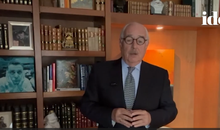
Andres Pastrana: CDI stands strongly by the DP, has shown determination
2025-04-25 20:57:42






Berisha in Tirana: Benefits and subsidies for those returning to Albania
2025-04-25 19:32:44
Berisha: Albanians spend 4 times more on medicine than on bread
2025-04-25 19:19:58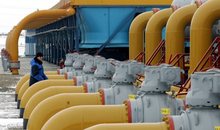
Russia and Iran strengthen ties with gas deal
2025-04-25 19:02:46
Video/ Disappointed miner burns his PS card
2025-04-25 18:45:02
Accident in "Plepat e Kardhiqit", German hits pedestrian in Gjirokastra
2025-04-25 18:36:02
Begaj and Osmani pay homage near the body of Pope Francis in the Vatican
2025-04-25 18:17:28
He raped an OSHEE employee, a 38-year-old man is wanted in Tirana
2025-04-25 18:04:30



62-year-old man dies after falling from height while working in Golem
2025-04-25 17:15:29
Russian general killed in Moscow bomb blast
2025-04-25 16:58:28
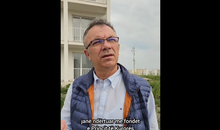

Tirana/ Drunk 22-year-old breaks equipment, father and son punch her
2025-04-25 16:20:12



Meta: Pension increases will begin immediately with the vote for No. 1
2025-04-25 15:29:47
Trump: Crimea will stay with Russia, Zelenskyy knows this
2025-04-25 15:20:27
Silent deforestation from illegal logging, fires, mining and neglect
2025-04-25 15:11:12
New Moon challenges, opportunities for these two signs
2025-04-25 15:01:38
Accident on the Gjirokastër-Tepelena axis, German driver hits 38-year-old woman
2025-04-25 14:49:59
Improve eye health, 10 foods you should definitely add to your daily meals
2025-04-25 14:41:31
Tourism falters in March, foreigners fall by 2.7 percent
2025-04-25 14:31:59
Fiscal Peace in Albania: A Dangerous Deal with the Past
2025-04-25 14:24:48
Selling cannabis at Kombinat, 25-year-old arrested
2025-04-25 14:19:32

Rama's show with Vlora airport, will it end up abandoned like Kukësi?
2025-04-25 14:01:06

Arrested for stalking Dibra hospital director, house arrest for Irini Shehu
2025-04-25 13:41:48
Incidenti në Dibër, Berisha: Provokacion i ulët i bixhozgjiut Blendi Klosi
2025-04-25 13:32:40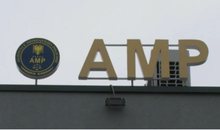
Police officer arrested for driving ambulance while drunk in Vlora
2025-04-25 13:27:02

DP denounces the mayor of Maliq, Gëzim Topçiu, to SPAK
2025-04-25 12:55:50

Woman jumps from the eighth floor of the building in "Don Bosko"
2025-04-25 12:34:23

DP's program for medicine/ Alimehmeti: Healthcare needs urgent reforms
2025-04-25 12:20:11



Eni Vasili elected General Director of RTSH
2025-04-25 11:40:27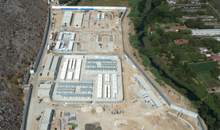


Serious accident in the Kalimash Tunnel, suspected victims
2025-04-25 11:05:23
Gjimnazisti vret shokun dhe plagos tre të tjerë
2025-04-25 10:59:57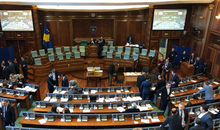
Kosovo Assembly constitution fails again, VV candidate rejected
2025-04-25 10:42:29






Begaj leaves for Italy, will attend Pope Francis' funeral
2025-04-25 09:29:14
Farewell to Pope Francis, over 128 thousand believers in homage in 48 hours
2025-04-25 09:21:28
Asphalt campaign for votes in the villages of Mati
2025-04-25 08:59:25

Foreign exchange/ How much foreign currencies are bought and sold today
2025-04-25 08:40:05
Albania needs 20 years to be classified in the group of high-income countries
2025-04-25 08:35:33
Horoscope, what do the stars have in store for you today?
2025-04-25 08:21:37
What is the weather expected to be like today, the forecast for this Friday
2025-04-25 08:09:26
Posta e mëngjesit/ Me 2 rreshta: Çfarë pati rëndësi dje në Shqipëri
2025-04-25 07:53:43
"Rama waves his passport in vain", Noka: Our strong point is the program,
2025-04-24 22:56:22


Kryemadhi: I like going to SPAK, I make jokes
2025-04-24 22:21:02

Tirana/ The young man is brutally raped and taken hostage
2025-04-24 22:03:32



DW: Thousands of people at the "March of the Living" at Auschwitz
2025-04-24 21:19:06

A party that has always thought about Albania...
2025-04-24 20:52:51

Gjadri Camps, ANSA: EC Committee for the Prevention of Torture soon in Albania
2025-04-24 20:36:39


39 killed in latest Israeli attacks on Gaza
2025-04-24 19:57:02


US and OSCE representatives attend mass for Pope Francis at St. Paul's Cathedral
2025-04-24 19:08:45

The world's youngest billionaire! Who is Lucy Guo, founder of ScaleAI?
2025-04-24 18:53:51

